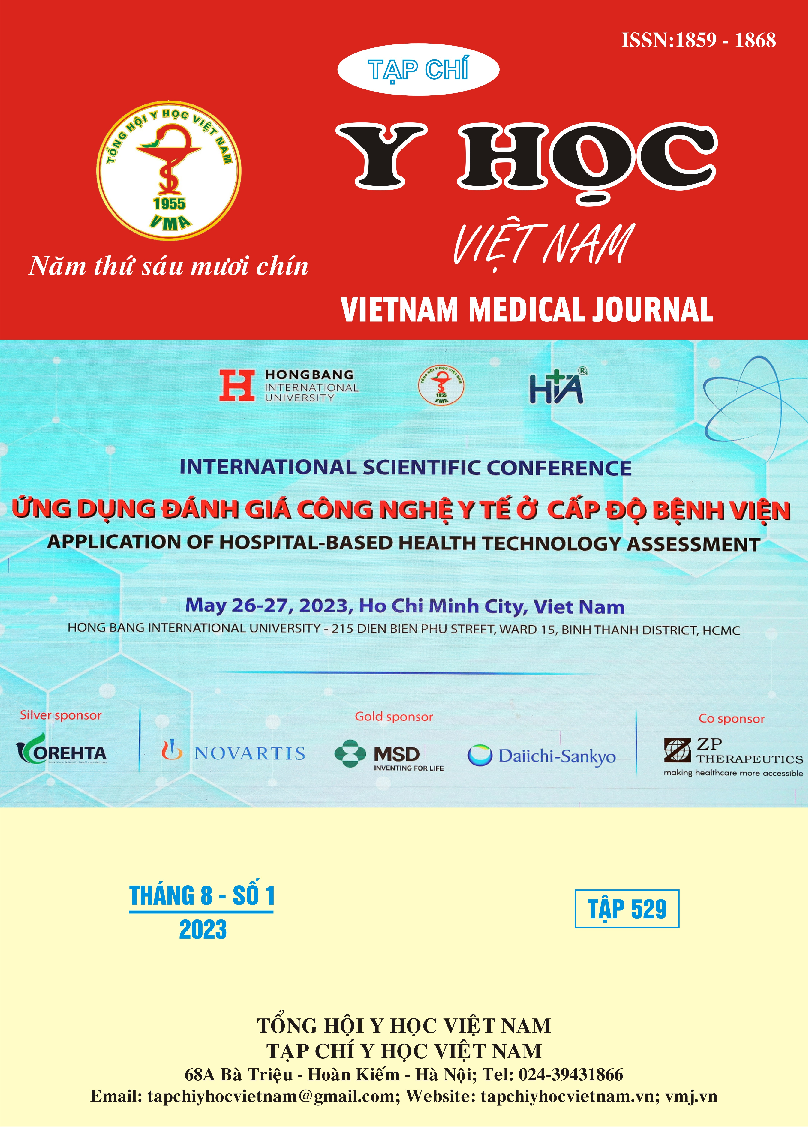THE ASSOCIATION BETWEEN MEDIA MULTITASKING AND DEPRESSION, ANXIETY, STRESS AMONG HIGH SCHOOL STUDENTS IN HO CHI MINH CITY
Main Article Content
Abstract
Background: Media multitasking is a common habit in adolescents and young adults and is associated with increased depression, anxiety, stress symptoms. Objectives: This study evaluated the association between media multitasking and depression, anxiety, stress among high school students in Ho Chi Minh City. Materials and methods: This cross-sectional study was carried out during January to March 2023 at 4 high schools in 4 districts in Ho Chi Minh City with the participation of 1009 students. Students completed a self-reported questionnaire which included information about demographic characteristics, media multitasking measured by the MMM-L scale and depression, anxiety, stress assessed by the DASS-21 scale. Results: The prevalence of depression, anxiety and stress was 55.8%, 67.9% and 50.2%, respectively. Most students multi-tasked while texting (99.0%), surfing social network sites (92.9%) and listening to music (90.9%). Eating and doing homework were the two non-media activities with the highest prevalence (90.3% and 89.7%). Multitasking while texting was associated with the highest odds of depression, anxiety and stress. In the non-media activity group, multitasking while doing homework was associated with a higher odds of depression and anxiety. Multitasking while eating and self-studying were associated with a higher odds of stress. Conclusion: There was difference in the odds of having depression, anxiety and stress in different multitasking activities. It is necessary to have a close cooperation between families and schools in controlling and managing students' use of media and their daily lifestyle behaviors to prevent mental health problems.
Article Details
Keywords
Media multitasking, depression, anxiety, stress, student, high school.
References
2. Nguyễn Danh Lâm, Lê Minh Giang, Nguyễn Thị Phương Mai, Nguyễn Thị Diệu Thúy, Nguyễn Thị Thanh Mai (2022) "Thực trạng nguy cơ stress, lo âu, trầm cảm của học sinh trung học phổ thông huyện Yên Định, Thanh Hóa". Tạp chí y học Việt Nam, 1 (516), tr. 67-70.
3. Thai TT, Vu NLLT, Bui HHT (2020) "Mental health literacy and help-seeking preferences in high school students in ho Chi Minh City, Vietnam". School Mental Health, 12 (2), pp. 378-387.
4. Baumgartner S, Wouter Weeda, van der Heijden Lisa L., Mariette Huizinga (2014) "The relationship between media multitasking and executive function in early adolescents". Journal of Early Adolescence, 34 (8), pp. 1120-1144.
5. Hilde Voorveld, Claire M Segijn, Paul Ketelaar, Edith G. Smit (2014) "Investigating the prevalence and predictors of media multitasking across countries". International Journal of Communication, 8 (1), pp. 2755-2777.
6. Li Shiyi, Fan Lifang (2022) "Media multitasking, depression, and anxiety of college students: Serial mediating effects of attention control and negative information attentional bias". Frontiers in Psychiatry, 13:989201
7. Mindy Lee, Karen Murphy, Glenda Andrews (2018) "Using Media While Interacting Face-to-Face Is Associated With Psychosocial Well-Being and Personality Traits". Psychol Rep, 122 (3), pp. 944-967.
8. Myoungju Shin, Eva Kemps (2020) "Media multitasking as an avoidance coping strategy against emotionally negative stimuli". Anxiety, Stress & Coping, 33 (4), pp. 440-451.


